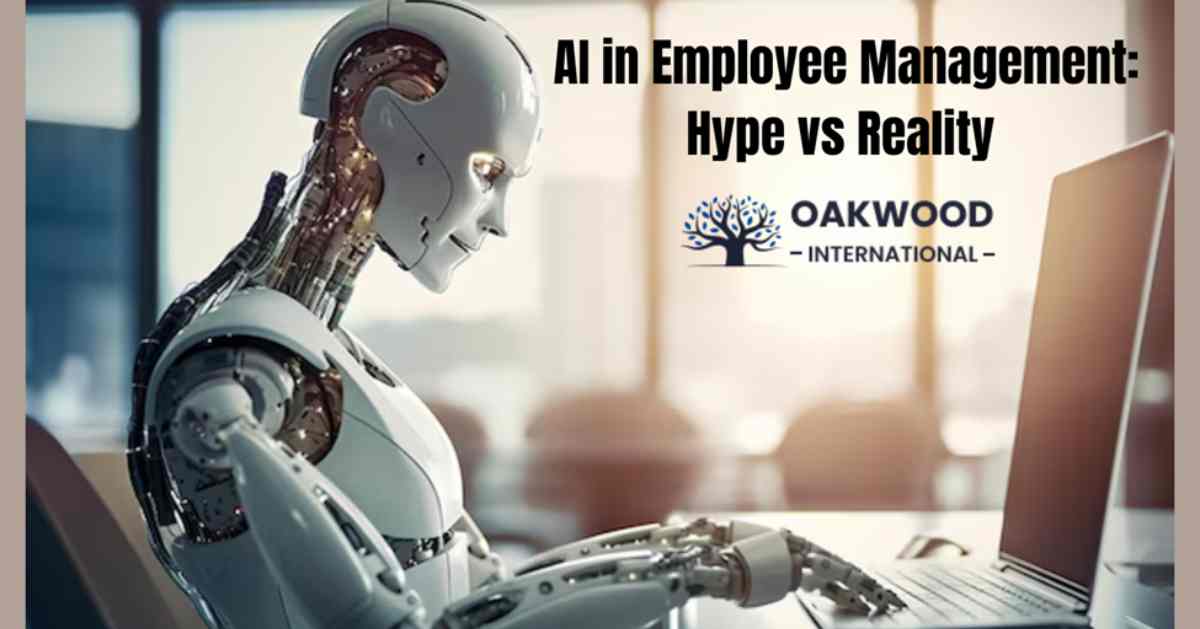AI in Employee Management: Hype vs Reality

Human resources is changing quickly, so leaders must be smart and tech-savvy. With AI-powered solutions becoming more popular, HR professionals want to improve their skills through HR Leadership Courses to stay ahead in an age of automation. In reality, is AI changing how we handle our employees, or is it just another trendy word that makes big claims?
One of the most controversial topics in the workplace is how AI can help motivate employees. Many companies are investing a lot of money into AI in Employee Engagement to improve efficiency, job happiness, and the general mindset of the workplace. In reality, AI can’t do everything the business hype makes people think it can. Let’s examine the truth about how AI affects managing employees.
The Hype vs Reality of AI in HR
While AI continues to revolutionise workforce management, it is essential to separate the myths from the actual impact it has on HR functions. Let’s explore the key areas where hype meets reality:
The Hype: AI Will Replace HR Decision-Making
Many people think that AI will eventually take over all HR tasks, making human decision-making unnecessary. But this view is very different from the truth.
· People think hiring people with AI will eliminate bias and pick the best options accurately.
· Performance tracking powered by AI should be able to judge employee work more correctly than human managers.
· Predictive analytics says it can tell when employees are likely to quit, which helps companies keep good workers.
· People think automating HR tasks is a step towards making decisions without people’s help.
The misconception: AI will take over HR jobs, making standard HR workers useless.
In fact, AI is just a tool for helping people make decisions; it can’t replace the critical thinking needed in HR.
[Read About: Enhancing Customer Calls with AI ]
Reality: AI Supports, Not Replaces, HR Professionals
AI is meant to help HR teams, not replace them. It will help improve processes while keeping human knowledge at the centre.
· Smart robots answer common HR questions, which makes office work easier.
· Tracking success with AI ensures that ratings are fair, but they still need to be supervised by a person.
· Predictive analytics can find trends in the workplace, but only HR workers can understand these trends and act on them correctly.
· AI-driven sentiment analysis can evaluate employee happiness through emails, polls, and chats.
· HR is still important because it provides emotional intelligence, guidance, and dispute settlement, which AI can’t do.
Instead of removing human relationships, AI improves HR tasks so that professionals can focus on strategy and the health and happiness of their employees.
The Hype: AI Can Fully Automate Employee Engagement
Many companies think that AI can handle all of their employees’ involvement needs and give them personalised experiences with little help from humans. But is this hope reasonable?
· AI platforms say they can customise employees’ experiences and automatically motivate them.
· AI-powered real-time feedback systems are seen as a replacement for performance reviews led by people.
· Traditional ways of thanking employees are likely to be replaced by automated texts.
· AI-based tracking of employee involvement is sold to keep workers happy and busy.
The misconception: AI can keep employees interested in their work without human help.
However, employee engagement is very personal and needs real human relationships, which AI can’t fully duplicate.
Reality: AI Enhances Engagement Strategies, Not Human Connections
AI is a big part of improving interaction, but it can’t replace real human connections at work.
· AI-powered learning tools help employees advance in their careers by tailoring their learning to their hobbies and skills.
· AI-powered organising tools help spread work so that no one gets too tired.
· AI’s insights into engagement show trends, but HR leaders must do something about them.
· AI helps managers by reminding people to make comments and be recognised, but it can’t replace real praise.
· It is not automation; deep talks, mentoring, and guidance lead to actual involvement.
The most successful businesses use AI to help them do their work, not to replace human contact.
Conclusion
AI is becoming more useful in managing employees, but it is still not an alternative to human knowledge. The best companies use AI as a support system, taking advantage of its analysis power while ensuring that HR stays focused on people.
For those looking to master this balance, Oakwood International offers specialised training to help HR professionals integrate AI effectively while maintaining the human essence of workforce management. AI may be the future, but great leadership remains irreplaceable.
